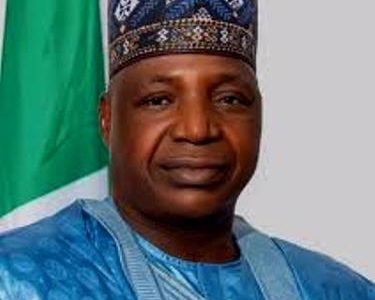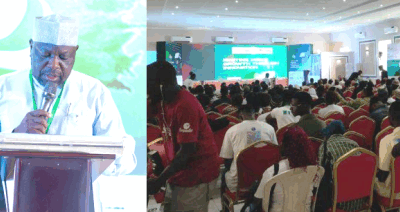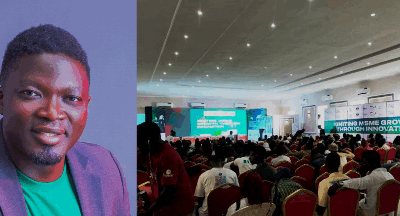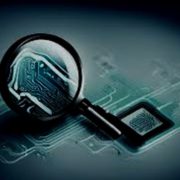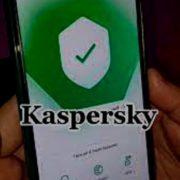A Lagos seminar organised by Data Sciences Nigeria Limited in partnership with StarTraq UK Limited and Tele-Traffic UK to demonstrate how technology can be used to address traffic violations could turn out to be the start of ending Nigeria’s endemic traffic woes. IT Edge News, Martin Ekpeke, spoke with the key drivers of this seminar: the trio of Alhaji Ladi Ogunneye of Data Sciences Nigeria Limited; Brian Carbarns, StarTraq UK Limited; and Mike Ricketts of Tele-Traffic UK.
IT Edge News
What is the purpose of today’s event?
Ladi Ogunneye, Data Sciences Nigeria Limited
The purpose of this event is to introduce to the Nigerian market technologies that will curb traffic infractions. All over the world we get into traffic infractions, but the one thing we have not started doing here is to deploy technologies to capture these infractions, administer them and use this technology to capture those people who disobey traffic rules, and persecute them according to the laws of the land.
IT Edge News
Can we meet you and why is this event holding?
Brian Carbarns, StarTraq UK Limited
My name is Brian Carbarns. I am the International Sales Manager of the UK company called StarTraq, We sell back office software for the processing of any traffic violation. I used to work very closely with Data Sciences in Nigeria through a previous job and Data Sciences have been instrumental in back office data software to the transport society of Lagos State that is why I am here today.
IT Edge News
What is today’s event all about?
Mike Ricketts, Tele-Traffic UK
It is all about being able to promote road safety and look at drivers’ behaviour. My particular equipment will look and film drivers. It takes 50 photographs each second; you can measure the speed of the vehicles. You can monitor infringements such as U-Turns, driving against traffic, red lights, seat belt offences and mobile phone offences.
IT Edge News
Many people are skeptical about the effectiveness of this technology and also whether deploying it will not translate to loss of jobs for many traffic wardens?
Ladi Ogunneye, Data Sciences Nigeria Limited
No! That is an age long debate, whether technology and computers take away jobs or not, that is not true. All over the world, even the police in the US and UK, the policemen are still there, they only use technology to enhance their performance. When you tell somebody he has done this and he says he didn’t do it, but when technology is used to capture his offence, there will be no argument. In terms of losing jobs, it is not so. I am the former President of Nigeria Computer Society, when you hire more people in this area you hire more in other areas. It takes a lot of manpower to build these technologies. They hire people, software go into all this. You need the manpower to get jobs done and done well. We can use these technologies to complement the efforts of general enforcement agencies in Nigeria.
IT Edge News
How does the system work?
Brian Carbarns, StarTraq UK Limited
What the software does is that it enables the police authorities to get transparency on the accountability of each and every traffic violation committed in Lagos. After that they can see the status of each and every traffic fine. There is always a risk as the country grows and population explodes that there can be a lack of transparency in what is registered as a fine and what is collected in terms of fine monies. There is also a second debate which is that of the road safety, no country in the world wants to see an increase in the number of death from road accidents. In the UK, we have a link between the utilisations of traffic cameras and reduction in death from road accidents.
IT Edge News
Are you bringing the same kind of solutions you have deployed in cities in the UK to Nigeria or do you have specific solutions for a particular area?
Mike Ricketts, Tele-Traffic UK
Our system is much larger and we can take it to any country. We need to discuss with your state government, and we need to know what requirements are required, what offences are particularly of interest here, we can then tell you the equipment that will address those needs.
IT Edge News
How will the companies engage with the government to buy into these technologies?
Ladi Ogunneye, Data Sciences Nigeria Limited
That is the main reason for this seminar, as you will see the officers that are in charge of traffic in both Lagos and Ogun states as well as the FRSC are here. The purpose of the seminar is to create exposures on these technologies. We had an encounter with the Honourable Commissioner of Lagos State and he knows much more than we do. I think they are just waiting for the right time to begin to deploy this technology to help in doing their job.
IT Edge News
In your engagements with the local authorities, what are the specific requirements or traffic offences are you looking at?
Mike Ricketts, Tele-Traffic U
In particular U-Turns, driving against traffic, red lights, anti social behaviour where it becomes dangerous. Any of these offences could cause injuries to people.
IT Edge News
In terms of percentage, what can this technology do?
Brian Carbarns, StarTraq UK Limited
Let me use some statistics, this is public research. If you compare road death between 2005 and 2009 up till 2011 there is about 32% improvement in terms of the decrease in the number of road deaths.
IT Edge News
How can these solutions reduce the heavy traffic congestion in Lagos specifically?
Ladi Ogunneye, Data Sciences Nigeria Limited
There is nothing happening in Lagos that is not happening in any other big cities in the world like London, Paris, New York etc. The only thing is we are not booking the people engage in infraction of the law. What we are lacking here is capturing those infractions and policing. They may not be interested in making money out of the infractions. They may just use technology as part of their social certitude. If at the end of the year, law enforcement agencies have been able to reduce death on our roads and reduce traffic infractions, they must have done their job. But nothing stops them from making revenue by getting those who have infracted to pay some fines. So when we start using technology, we will be talking about provable evidence of infractions and of course the technology will capture plate number – law officers will now only go to a data base and investigate to determine the owner of the car, and using computers, you can do whatever you want with that information.
IT Edge News
How can this solution help the government to address these challenges?
Mike Ricketts, Tele-Traffic UK
Once you have gotten the record of the offence, my partner company can actually research who the car owner is and deliver information on the car and maybe identify the driver. From there the police can make enquiries and deal with the offence. It helps if there is any persecution that will take place; the evidence is there because it is irrefutable.
IT Edge News
Is an analytic built into your solution that can help people get requisite information from the huge amount of data the system creates?
Mike Ricketts, Tele-Traffic UK
You can’t get data from the system. It can actually do more than just analyse your profile in traffic on any particular road. The system can allow you determine the degree of occupancy that is on the road. If the roads are overloaded, do you need to change the engineering of the road; are there issues in terms of making a traffic lane better? So you can gather all that data consistently while the video is going on. It is not just the cases of speeding enforcement; you can deal with a lot of issues because the videos are high quality it can be reviewed at anytime
IT Edge News
How are you sure these solutions will work in the Nigerian environment?
Brian Carbarns, StarTraq UK Limited
We believe it can work because you can stick a camera anywhere in the city, you can use it for speed, you can use it for people not wearing seat belts, you can use it for people on their mobile phone while driving which is sort of dangerous. For example, if cameras should be established in Lagos State, with our back office at StarTraq, we can process any violation from any camera.
IT Edge News
Can it work in a low bandwidth environment?
Mike Ricketts, Tele-Traffic UK
You don’t need broadband at all. We record the compact flash in real time high definition which is then taken by the operators to a download station where the information is immediately downloaded into a processing server. There is a capability of transferring data along the distance, but there are not many countries in the world that actually look to do that. You can broadcast it halfway across the world if you want via satellite, but very difficult and very costly.
IT Edge News
What is the power consumptions requirement of your solutions?
Mike Ricketts, Tele-Traffic UK
The Ranger which is the long range unit that takes 50 photographs per second can be plugged into any main source overnight, there is a battery within it, it charges up, the battery will last to 2-3 days when charged and in operation 15 hours a day. The capacity for storage within it is self sustained. The small unit which is the TruCam again charges from the mains and it last 15 hours per charge on one battery and we supply two batteries.



